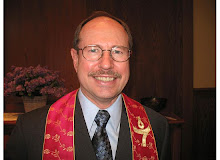I spent the summer as an intern chaplain for a hospice program, visiting patients, and families of patients who have been diagnosed as having a terminal illness or condition, giving them weeks to months to live. To be fair, some patients live for years (sometimes because of the hospice care), and a few, very few, are seemingly cured, at least for this round of terminal life. But most of the patients are going to fulfill the diagnosis. Few of the deaths are exactly as planned or wished (though I witnessed some heroic and wonderful staging), but some degree of control can be had with family and hospice care engaged early enough in the cycle. Pain can be controlled with the help of the hospice Doctor and Nurses, Social Workers will help make sure societal issues are taken care of as best they can, and the Chaplain will help the patient and family if they need emotional and spiritual companionship or just a friendly chat.
This is what I did as a hospice chaplain, my job was to assess if the patient and family was comfortable emotionally and / or spiritually with the dying process, and if the they had emotional and spiritual resources to hold onto. Ask yourself, if any particular family member was diagnosed as terminally ill, could they "come home" to die with family and friends around them? What resources could be brought together to help in the process? Who would step up to be the Primary Care Giver? Secondary? Who would care outside of the family? Is there a religious or other organization that would or could become involved? What if it were yourself? How would you wish to be treated and cared for?
I think you can see how this situation is a test of relationships for the patient, the family system, and the religious or other organizations around them. It is a test of a patients relationship with themselves, how they see themselves in the world. Everything they believed about who they are is being given a final review, an assessment of their fears, of loves, of their life. Some will be able to let go with dignity and grace, others with fear, some with anger. It didn't seem to matter what religion they followed... or none, but more as to what attitude they carried internally. This showed in their relationships with family and friends... to the world around them. My supervisor stated at the beginning of the chaplaincy that it seems "as one lives, so one dies." To have personal dignity and grace in life requires a certain amount of giving others their dignity, of being in a good relationship with them. To claim your dignity and grace at the end of life, it is good to to have a store of it in your relationships to claim in your need.
This does not mean one cannot be a "singular" personality in the world to claim grace. Some of us are just not from the same mould as our families, and do not join organizations easily or with pleasure. For the individualist there is risk of isolation and estrangement that can cause consternation with the family when death is at hand. It seems that no matter how independent one feels relationships swirl around you. If you wish to be independent in death, you need to establish your dignity and grace with your family in that way during life. I watched a dying individual be offered what the family thought he should have in the way of ritual during his illness (in love of course), but what his independent spirit needed was just their presence, not their "ways."
Relationship by death. A hard time to figure it out. Confusing, emotional, and in many cases, too late. But death is part and parcel of our human existence, and we ignore it to our dismay. Macabre as it might seem, writing down or telling someone you trust (in your family or otherwise) how you would like your death and memorial service to happen can be very cathartic. It can open you up to your mortality and your present state of being. The exercise can inform how do you feel about yourself, your family, your friends, and the world around you. What would you want to share with them about yourself before you die, and what memories of you would you like to share at a memorial? What music, stories (funny to sad), fears, mistakes, triumphs and defeats would you share? What could be said about your relationship to the world right now that you would own and gladly recount? And be real... humans relationships are messy, they take attention and care to do well. And doing life well... isn't that what we should be about? We should take care of our life, of our relationships, before we die. It's certainly a lot tougher after you're gone.

No comments:
Post a Comment
Please be considerate in commenting. Rude and unhelpful comments will be deleted.